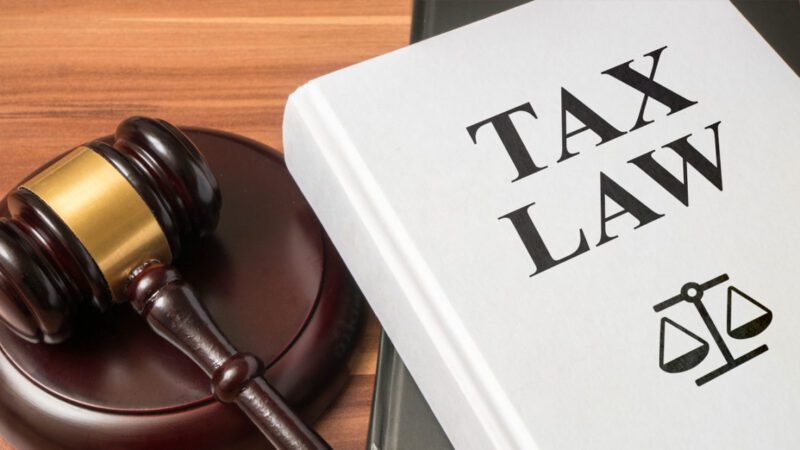Economic Issues
Value Added Tax And Legality Of Sales And Consumption Tax: The Issue Of Double Taxation -By Saints Olanrewaju

Value Added Tax is an indirect tax levied under the Value Added Tax Act Cap VI, LFN 2004 (as amended 2007). The Act replaced the Sales Tax Act of 1986. The Tax is charged on the supply of all goods and services, other than those exempted. The Vendor has the responsibility to collect it from the purchaser on behalf of Federal Inland Revenue Service (FIRS) and remit to FIRS on or before 21st day of the month after collection.
Background details
Section 40 of the VAT-Act. Cap VI- (as amended) LFN 2007 specifies the formula for distribution of revenue accruing from VAT as follows:
- 15% to the Federal Government;
- 50% to the State Governments and Federal Capital territory, Abuja; and
- 35% to the Local Government.
In a quest to bring development to the doorsteps of the people, some states operate Sales tax alongside with the Value Added Tax and subsequently subject to several litigations in various court of competent jurisdiction.
Court cases and decision held:
- Dongban-Mensem, JCA in Attorney General of Lagos v. Eko Hotels Limited [2008] All FWLR (Pt. 398) 235, at pages 259-260 where the court held:
“VAT and Sales Tax are the same. VAT, as earlier noted, is ordinarily termed “National tax on sales of goods and services”. The actual beast of burden of the VAT/Sales Tax is the consumer and the tax is charged on consumable items (refer to the schedules of both the VAT and Lagos State Sales Law). The imposition of both VAT and sales tax will

“What this appeal decides is that: It is the 2nd respondent, as the Federal Government agency alone to which the 1st respondent as Eko Hotel Limited is obliged to collect and remit VAT. It is accordingly under no obligation to collect additional tax on the sales of its services to its customers. VAT, in this situation has covered the field of tax on consumption of the services provided by the 1st respondent.”
- On June 18, 2009, Hon. Justice O. H. Oshodi of the High Court of Lagos State, in Lagos Board of Internal Revenue v. Nigerian Bottling Company Plc and Anor, Suit No. ID/45/2002, dismissed the claim of Lagos State Board of Internal Revenue (“LSBIR”) against Nigerian Bottling Company, Plc. (“NBC”) that had sought to impose sales tax on NBC.
LSBIR was not entitled to impose sales tax on Nigerian Bottling Company Plc in view of the provisions of the Value Added Tax Act. Cap VI, LFN 2007. Reliance was placed on the judgment held by Dongban-Mensem, JCA of the Court of Appeal in Attorney General of Lagos vs. Eko Hotels Limited [2008] All FWLR (Pt. 398) 235 where the court held that both taxes are the same and that the imposition of both taxes amounted to double taxation (as stated above)
Dissatisfied with these decisions, LIRS appealed to the Supreme Court of Nigeria. In resolving the issue, the Supreme Court held as follows:
That the Value Added Tax Act is an Act validly enacted by the National Assembly that levies a 5% tax on the sale of specified goods and services. The learned justices observed that the Sales Tax Law of Lagos State also taxes the same set of goods and services at 5%. The court held that the VAT Act already covered the field and thus the Sales Tax Law of Lagos State could not operate alongside the Value Added Tax Act. Allowing the two laws to operate at the same time would amount to double taxation because not only do both legislations cover the same goods and services, they are also targeted at the same consumer. The Supreme Court held inter alia as follows:
“I am in complete agreement with learned counsel for the 1st and 2nd respondents that not only do both legislations cover the same goods and services, they are also targeted at the same consumer. The tax has already been collected by the 1st respondent pursuant to the VAT Act. When a dispute arose as to which of the two claimants the tax collected should be remitted to, it rightly approached the court for direction. There is no doubt in my mind that it would amount to double taxation for the same tax to be levied on the same goods and services, payable by the same consumers under two different legislations”. (Per Kekere-Ekun, JSC)
“Also, [1]The Supreme Court decision in Attorney General of Ogun State vs. Alhaja Ayinke Aberuagba (1997) 1 NRLR (part 1) 51 @ 60” Supreme Court decision was based on notion “Covering the field” with identical legislation of state Govt. with Federal Govt…
Consumption Tax
On June 22, 2009 Lagos state signed “Lagos State Hotel Occupancy, Restaurants and Events Centers Consumption Tax Law, 2009” aimed at replacing the earlier sales tax which has become a subject of litigation. The facts of this law was based on nexus “Economical Presence & Economical benefit” as evidence in constant denouncing the sharing formula applied to VAT by Lagos State Government. No doubt, Lagos state records more than half of total accumulated VAT generated by Federal Government.
Recently, consumption tax has been subjected to several litigations.
On March 21, 2018, Justice Rilwan Aikawa of Federal High Court in Lagos in case between Association of Hotel Owner in Lagos vs. Lagos State Board of Internal Revenue Services (LSBIR) restrained (LSBIR) from further enforcing consumption tax law.
He particularly restrained the state from enforcing or implementing paragraphs 4, 5, 6, 7, 8, and 11 of the Lagos State Hotel Occupancy and Restaurant (Fiscalisation) Regulations 2017.
In addition, Justice Rilwan Aikawa stopped the state and its agents from visiting the plaintiffs’ hotels “for the purpose of installing fiscal electronic device and any other purposes whatsoever in furtherance of the law and the regulations.”
July 2018, Justice John Tsoho of the Federal High Court, Abuja, in the case between Retails Supermarket Nigeria Limited (Operator of Shoprite) vs Kano State Internal Revenue Services, held that: “Sections 96 and 97 of the Kano State Revenue Administration (Amendment) Law, No. 3 of 2017, are inconsistent with items 7 and 8 of Part II of the Second Schedule to the Constitution”. The imposition of consumption tax through Sections 96 and 97 of the Kano State Law over the same goods and services, which are already subject to VAT amounted to double taxation.
*Covering the field*
The Notion “Covering the field” which has been the basis of several rulings on issues of VAT, Sales Tax and consumption tax, implies that the both state and federal government can’t operate same legislations for imposition of tax on same goods and services & targeted at the same consumer. Thus, the following have been an issue for clarification before the court:
- Whether the VAT Act hasn’t ‘covered the field’ on taxation of goods and services including those consumed in hotels, restaurants and event centers;
- Whether the consumption tax is valid in view of the VAT Act, Cap VI, LFN 2007;
- Whether consumption tax can cover those goods and services exempted under Sec. 3 of VAT Act, cap VI, LFN 2007 and if the basis of exemption of certain goods and services gives the state power to legislate and impose tax on exempted goods and services by VAT Act.
Supreme judgment has finally laid to rest, the controversy surrounding the imposition of the Sales Tax. However, it is expected that the dispute on consumption tax would go all the way to the Supreme Court given that the Constitution does not vest either the State or Federal Government any exclusive or concurrent power to legislate on consumption tax, particularly in Lagos, where Federal High Court has restrained Lagos State from enforcing consumption tax.
The Major Concern
It has been observed:
- Several hotels, restaurants/eateries still charge consumption tax along with VAT and insist no service will be rendered until consumption tax is paid. Incidentally, they could not provide evidence of remittance to regulatory authorities. It is unclear (& seems impossible), whether the hotels, eateries e.t.c intend to refund Consumption tax collected after necessary appeals have been exhausted.
- Hotels and eateries charge VAT ( & consumption tax) on water despite been categorized as basic food items exempt from VAT under Sec. 3 of VAT Act, Cap VI, LFN 2007, and subsequent ruling in court of Competence jurisdiction by Honorable Justice I.N. Buba in Association of Food, Beverage and Tobacco Employers (AFBTE) Federal Inland Revenue Service (Federal High Court, Lagos Judicial Division. Suit No: FHC/L/CS/157/2015. Judgment given: 11 May 2015), that water (whether in bottle or packaging material) is a basic food item and therefore exempt from VAT.
[1]– held that a State Law on consumption tax might be void on the ground of covering the field where identical legislations, without any inconsistency on the same subject matter, were made by a State and by the Federal Government. In such a situation, the State Law must give way to the Federal legislation. However, the Ogun State Sales Tax Law was declared null and void by the Supreme Court, because the Law imposed a tax on goods and services brought into the State which was a matter of inter-state trade and commerce which is within the exclusive legislative power of the Federal Government.













![The EU is punishing Turkey for an operation that it felt forced to embark on as a result of their own questionable decision to partner with the YPG in the fight against ISIL, writes Bakeer [Reuters]](https://www.opinionnigeria.com/wp-content/uploads/2019/10/The-EU-is-punishing-Turkey-for-an-operation-that-it-felt-forced-to-embark-on-as-a-result-of-their-own-questionable-decision-to-partner-with-the-YPG-in-the-fight-against-ISIL-writes-Bakeer-80x80.jpg)




